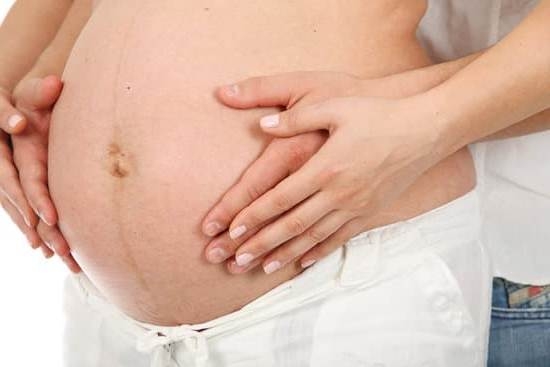Early pregnancy is an exciting and life-changing time for many women. It is essential to be aware of the common symptoms that may indicate the beginning of a pregnancy. What are the symptoms of early pregnancy? From physical signs to emotional changes, understanding these indicators can help individuals navigate this crucial period with confidence and awareness.
One of the primary signs of early pregnancy is a missed period, which can prompt many women to suspect that they may be pregnant. However, there are other subtle signals that may also point to the possibility of conception. These symptoms can vary from person to person but generally include a mix of physical, emotional, and psychological changes that require attention and understanding.
Apart from a missed period, early pregnancy signs often include nausea, fatigue, tender breasts, frequent urination, and mood swings. These physical symptoms can start as early as one week after conception and continue throughout the first trimester. It is crucial for women who suspect they may be pregnant to recognize these signs and seek proper medical guidance to ensure a healthy pregnancy journey ahead.
Understanding the Menstrual Cycle and Pregnancy
The menstrual cycle plays a crucial role in understanding early pregnancy symptoms. It typically lasts about 28 days, although variations are common among individuals. During a typical menstrual cycle, ovulation occurs around the middle of the cycle, which is when an egg is released from the ovaries and travels down the fallopian tubes. If fertilization does not occur, the egg along with the lining of the uterus is shed during menstruation.
When a woman becomes pregnant, there are significant hormonal changes that take place. One key hormone is human chorionic gonadotropin (hCG), which is produced by cells that form the placenta after implantation occurs. The presence of hCG is what triggers early pregnancy symptoms and can be detected in urine and blood tests to confirm pregnancy.
Implantation Bleeding and Cramping
Sometimes, around six to twelve days after fertilization, women may experience implantation bleeding. This can be mistaken for a light period but is usually much shorter in duration and lighter in flow. In addition to spotting, some women may also experience mild cramping as the embryo attaches itself to the uterine lining.
Missed Period
One of the most indicative signs of early pregnancy is a missed period. If your menstrual cycle is regular and you have missed your period, it could be a strong indication of pregnancy – especially when coupled with other symptoms like fatigue or breast tenderness.
Common Signs of Early Pregnancy
Recognizing the symptoms of early pregnancy is crucial for those trying to conceive or those who may be concerned about a possible pregnancy. The signs can vary from person to person, but there are some common indicators to look out for. One of the most prominent symptoms is a missed period, which often prompts individuals to suspect they might be pregnant. However, not all missed periods are indicative of pregnancy, so it’s important to consider other symptoms as well.
Apart from a missed period, other common signs of early pregnancy include nausea, fatigue, frequent urination, and tender or swollen breasts. Nausea commonly referred to as morning sickness and is experienced by many pregnant individuals during the first trimester. It can occur at any time of the day and may be accompanied by vomiting.
Fatigue is also a prevalent symptom due to hormonal changes in the body during early pregnancy. Some women may feel an increased need to urinate more frequently due to hormonal changes and pressure on the bladder.
In addition to physical symptoms, emotional changes are also common in early pregnancy. Mood swings, heightened emotions, and irritability are often experienced by pregnant individuals due to fluctuating hormone levels. These emotional shifts can sometimes be challenging to manage but are a normal part of early pregnancy. Identifying these common signs can help individuals determine whether they should take a pregnancy test or consult with their healthcare provider for further guidance.
| Symptom | Description |
|---|---|
| Nausea | Also known as morning sickness, it can occur at any time of the day |
| Fatigue | Due to hormonal changes in the body during early pregnancy |
| Frequent Urination | Caused by hormonal changes and pressure on the bladder |
Physical Symptoms of Early Pregnancy
One of the most common physical symptoms of early pregnancy is fatigue. Many women experience extreme tiredness even in the first few weeks after conception. This fatigue is often attributed to the hormonal changes happening in the body as it prepares for pregnancy. It’s essential for women to listen to their bodies during this time and get plenty of rest to cope with this symptom.
Another physical symptom of early pregnancy is breast tenderness or soreness. Hormonal fluctuations can cause the breasts to become more sensitive and swollen. This tenderness is usually one of the first signs that women notice when they suspect they might be pregnant. Wearing a supportive bra and avoiding activities that may cause discomfort can help alleviate this symptom.
Nausea and vomiting, commonly known as morning sickness, are also prevalent physical symptoms of early pregnancy. These symptoms can occur at any time of the day, not just in the morning. The exact cause of morning sickness is still not fully understood, but it is believed to be related to hormonal changes in the body. Managing morning sickness through small, frequent meals and staying hydrated can help pregnant women feel more comfortable during this time.
| Physical Symptoms | Details |
|---|---|
| Fatigue | Extreme tiredness due to hormonal changes |
| Breast Tenderness | Sensitivity and swelling in breasts |
| Morning Sickness | Nausea and vomiting throughout the day |
Emotional and Psychological Changes
During early pregnancy, women often experience a range of emotional and psychological changes alongside the physical symptoms. It’s important to understand that these changes are normal and can be attributed to hormonal fluctuations in the body. Here are some common emotional and psychological symptoms women may experience during early pregnancy:
- Heightened emotions: Many women find themselves feeling more emotional than usual, experiencing mood swings, tearfulness, or increased sensitivity.
- Anxiety and worries: The anticipation of becoming a parent can bring about feelings of anxiety and stress. It’s common to worry about the health of the baby, changes in lifestyle, financial concerns, and more.
- Excitement and joy: Despite any fears or anxieties, many expectant mothers also feel a sense of excitement and happiness about the upcoming arrival of their baby. This mixed bag of emotions is entirely normal during pregnancy.
It’s essential for pregnant women to prioritize self-care during this time of change and transition. Engaging in relaxation techniques such as deep breathing exercises, meditation, gentle yoga, or simply taking time for yourself can help manage stress levels.
Additionally, open communication with a partner, family members, or healthcare provider can provide much-needed support during this emotionally charged period. Remember that every woman’s experience with emotional and psychological changes during early pregnancy is unique; however, seeking support when needed is crucial.
Changes in Appetite and Food Aversions
During early pregnancy, changes in appetite and food aversions are common symptoms that many women experience. These changes can be quite noticeable and may vary from woman to woman. It is essential to understand these symptoms to navigate through the early stages of pregnancy effectively.
Common Appetite Changes
Some women may notice a sudden increase in appetite during the early stages of pregnancy, often referred to as “cravings.” These cravings can range from wanting specific types of foods like pickles or ice cream, to craving unusual combinations such as peanut butter and pickles. On the other hand, some women may experience a decrease in appetite due to nausea or food aversions.
Food Aversions
Food aversions are another common symptom of early pregnancy. Many women find themselves repulsed by certain foods they once enjoyed or even just the thought of them. This sudden distaste for specific foods can be intense and challenging to endure for some pregnant individuals. Below is a list of common food aversions experienced during early pregnancy:
- Strong odors such as cooking meat or coffee.
- Spicy or greasy foods.
- Foods with strong flavors like garlic or onions.
- Certain textures like meat or vegetables.
Understanding these changes in appetite and food aversions can help women manage their diet during early pregnancy effectively. It is essential to listen to your body’s cues, eat small, frequent meals, and stay hydrated. If you find yourself struggling with severe nausea or food aversions that impact your ability to maintain a nutritious diet, consult with your healthcare provider for further guidance on managing these symptoms during early pregnancy.
Experiencing Morning Sickness
One of the most common symptoms of early pregnancy is morning sickness, also known as nausea and vomiting during pregnancy (NVP). This symptom usually occurs within the first few weeks of pregnancy and can last throughout the first trimester for many women.
Morning sickness can be triggered by various factors, including hormonal changes, heightened sense of smell, and emotional stress. While the term “morning sickness” suggests that symptoms only occur in the morning, it can actually happen at any time of the day.
Managing Morning Sickness
For some women, morning sickness can be mild and easily manageable with lifestyle changes such as eating small, frequent meals, staying hydrated, getting plenty of rest, and avoiding triggers like strong odors or spicy foods. However, for others, morning sickness can be more severe and may require medical intervention.
In such cases, it is important to consult with a healthcare provider who may recommend certain medications or supplements to alleviate symptoms and ensure proper nutrition for both the mother and baby.
When Does Morning Sickness Start?
Morning sickness typically starts around the 6th week of pregnancy but can vary from woman to woman. Some may start experiencing symptoms earlier or later in their pregnancy.
It is essential to keep track of when these symptoms start and how they progress as it can provide valuable insight into your overall health during early pregnancy. If you are unsure whether what you are experiencing is morning sickness or another condition related to early pregnancy, it is best to consult with a healthcare provider for proper evaluation and guidance.
Uncommon Symptoms of Early Pregnancy
While many women may be familiar with common signs of early pregnancy such as fatigue, nausea, and breast tenderness, there are also some lesser-known symptoms that can indicate the beginning stages of pregnancy. One uncommon symptom to look out for is a heightened sense of smell. Some women may find that certain scents that never bothered them before now make them feel nauseous or overwhelmed. This increased sensitivity to odors can be a surprising indicator of early pregnancy.
Another unusual symptom of early pregnancy is frequent urination. While this symptom is often associated with later stages of pregnancy, some women may experience an increased need to urinate even in the early weeks after conception. This can be attributed to hormonal changes that affect the bladder and lead to more frequent trips to the bathroom. Understanding these less talked about symptoms can help individuals recognize and monitor their own bodies for signs of early pregnancy.
Additionally, some women may notice changes in their skin or hair during early pregnancy. Hormonal fluctuations can impact the body’s natural oils, leading to either dryness or oiliness in the skin and scalp.
Acne breakouts or shinier hair than usual may be indicators of hormonal changes related to pregnancy. It’s essential for individuals who suspect they may be pregnant to pay attention to these subtle shifts in their bodies and consider consulting with a healthcare provider for confirmation and guidance on next steps.
When to Take a Pregnancy Test
When a woman suspects she may be pregnant, one of the first questions that may come to mind is when to take a pregnancy test. While it can be thrilling and nerve-wracking at the same time, it is important to know the ideal time to take the test for accurate results. Pregnancy tests work by detecting the hormone human chorionic gonadotropin (hCG) in urine or blood, which is produced by the developing placenta after fertilization.
For most women, taking a pregnancy test about a week after a missed period is typically recommended. This allows enough time for hCG levels to rise high enough to be detected by the test. However, some sensitive early result pregnancy tests may be able to detect hCG even before a missed period. It is essential to follow the instructions on the pregnancy test package carefully for best results.
If a woman suspects she might be pregnant but receives a negative result on the first test, she could wait a few days and retest. Sometimes hCG levels may not be high enough in early pregnancy to show up on a test right away.
If there are still concerns or if symptoms persist, consulting with a healthcare provider may provide further clarity on the situation. It’s crucial to remember that each woman’s body responds differently and that multiple factors can influence when hCG levels become detectable through testing.
Conclusion
In conclusion, monitoring early pregnancy symptoms is crucial for those who suspect they may be pregnant. Understanding the signs and changes that occur during this time can help individuals make informed decisions about their health and well-being. From physical symptoms like breast tenderness and frequent urination, to emotional changes such as mood swings and heightened emotions, each person’s experience of early pregnancy can vary.
It is important to remember that not everyone will experience the same symptoms or with the same intensity. However, being aware of the common signs like missed periods, nausea, and fatigue can prompt individuals to take a pregnancy test for confirmation. Additionally, recognizing uncommon symptoms like dizziness or headaches can also be valuable in determining potential pregnancy.
Ultimately, staying informed about what are the symptoms of early pregnancy can aid in seeking appropriate prenatal care and making necessary lifestyle adjustments. Whether it’s adjusting one’s diet due to food aversions or seeking medical advice for severe morning sickness, being proactive in monitoring early pregnancy symptoms can contribute to a healthier pregnancy journey. Remember, every individual’s experience is unique, so it’s essential to listen to your body and seek professional guidance when needed.
Frequently Asked Questions
How Early Do Pregnancy Symptoms Start?
Pregnancy symptoms can start as early as one to two weeks after conception. These symptoms may vary from person to person but commonly include nausea, fatigue, breast tenderness, and frequent urination due to hormonal changes in the body.
What Are the 1 Week Symptoms of Pregnancy?
During the first week of pregnancy, some women may experience symptoms like implantation bleeding, which is light spotting that occurs when the fertilized egg attaches to the uterine lining. Other symptoms at this early stage may include mild cramping, increased basal body temperature, and mood swings.
How Early Can You Tell if You Are Pregnant?
Some early signs that may indicate you are pregnant can appear as soon as a few days after conception. These signs include a missed period, implantation bleeding or spotting, breast tenderness, fatigue, and nausea. You can take a home pregnancy test around a week after your missed period to confirm if you are pregnant.

Welcome to my fertility blog. This is a space where I will be sharing my experiences as I navigate through the world of fertility treatments, as well as provide information and resources about fertility and pregnancy.





